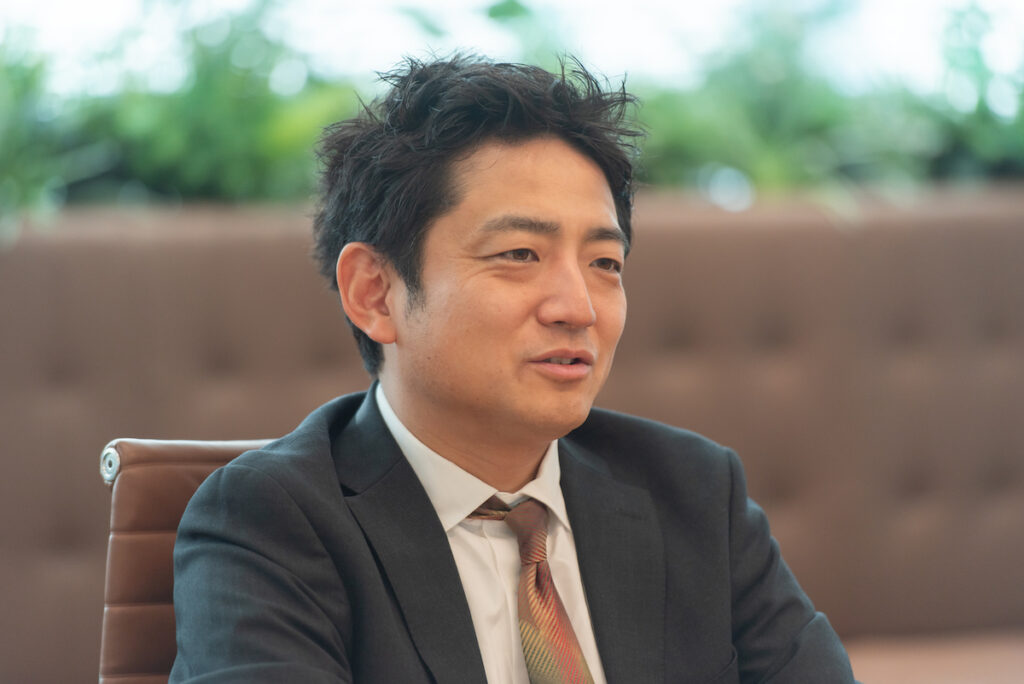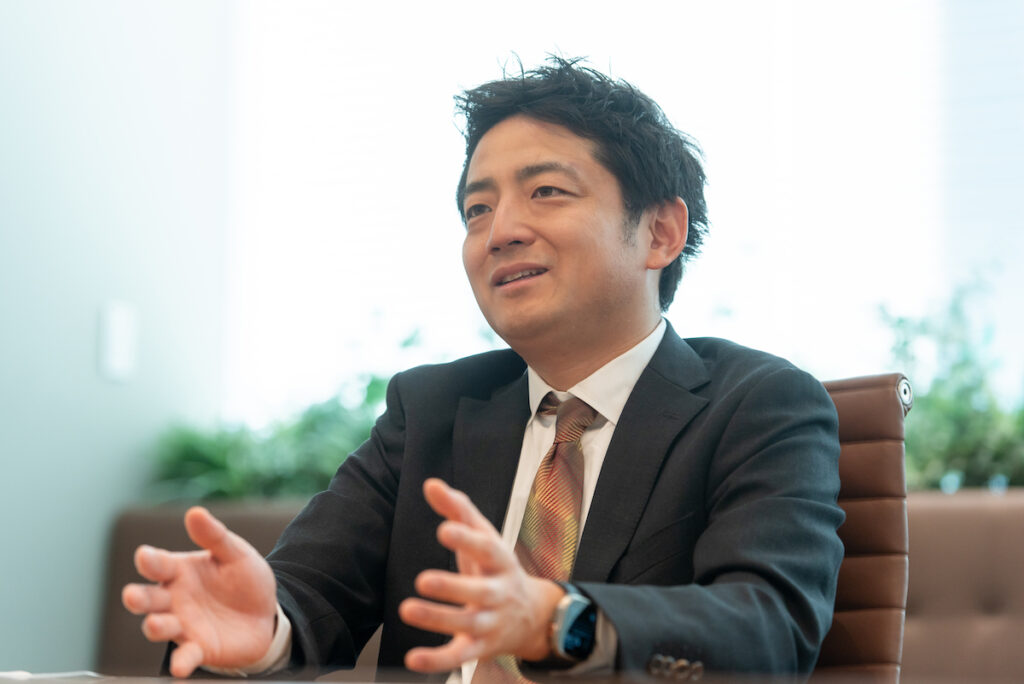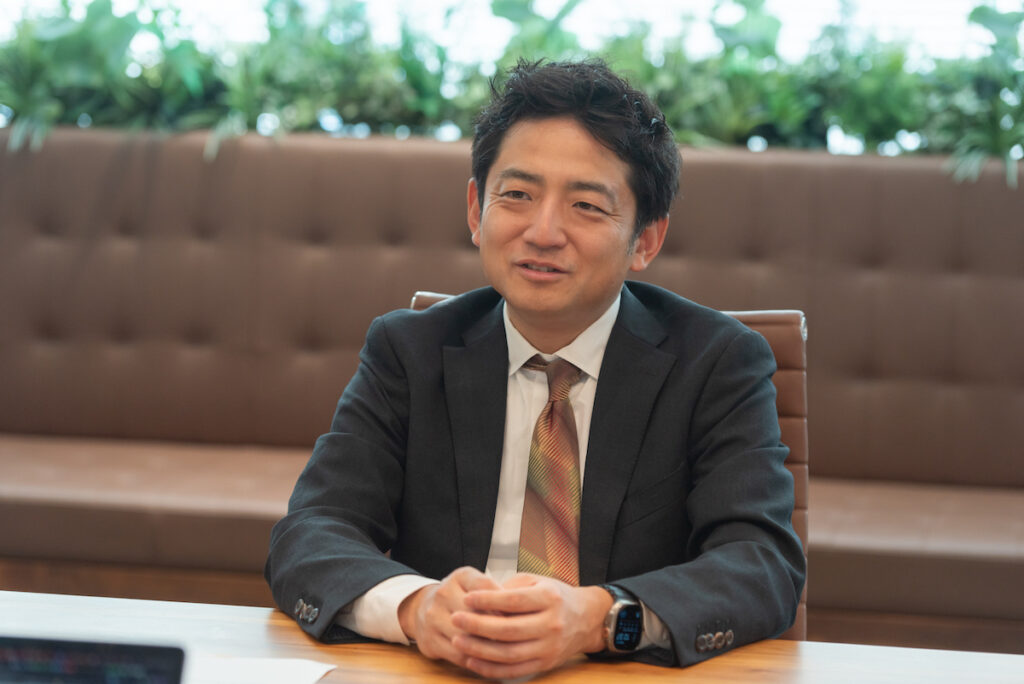
bitFlyer will celebrate its 10th anniversary in 2024. The founder, Yuzo Kano, is one of the people who has been working with crypto assets and blockchain in Japan. In March 2023, Mr. Kano returned to bitFlyer Holdings as Representative Director and CEO and took over the reins of the bitFlyer Group.Based on the turbulent 2023, we will discuss the situation of crypto assets and Japan in 2024, and more. We asked about the company’s efforts.
A turbulent year
──You returned to the position of president in March, surprising many people. Bitcoin has more than doubled since the beginning of the year, even though the market is being called a “crypto asset winter.” Meanwhile, looking at the industry, Binance has been fined a huge $4.3 billion by US authorities for anti-money laundering violations. Payment, CEO Changpeng Zhao resigned. How do you look back on 2023?
Kano:2023 will be a tumultuous year for me as I will be taking the reins of the bitFlyer Group again. Although we still have challenges to overcome, overall we were able to make it a good year. During the nine months since I returned to my role as CEO, I have been busy in meetings from morning until night, engaging in discussions with employees, and placing top priority on solving the many problems left behind by the previous management team. As a result, the company is in a much better position, and I think we are ready to make a comeback in 2024.
Regarding Binance, the head of the U.S. Department of Justice cited Binance’s money laundering and issued a statement saying that a company would pay one of the largest fines in U.S. history, but such concerns have been pointed out to Binance for some time. I was there. It is reported that the company ended up paying a huge fine of $4.3 billion, but we will continue to carefully monitor the situation to see if it will have an impact on the industry.
──Can we assume that the negative forces lurking in the crypto asset industry will be wiped out in 2023, starting with the collapse of FTX?
Kano: Not everything has been eliminated yet. However, I think it will eventually be withdrawn from the market. I believe there are still companies that continue to ignore legal violations that cannot be considered errors or mistakes even after being repeatedly pointed out by the authorities. If a situation that ultimately engulfs the industry occurs, the entire industry could be plunged into yet another winter era. It can be said that regulatory arbitrage (behavior to avoid regulations) is being carried out by abusing the current rules that cannot be regulated as an international problem, so this situation needs to be improved internationally. I think there is.
60x the market becomes the source of funds for purchasing Bitcoin


──On the other hand, there are expectations that Bitcoin spot ETFs will soon be approved in the United States, and Bitcoin halving is expected to occur around April. Bitcoin prices rose considerably at the end of 2023, but can we expect a more positive development in 2024?
Kano: We believe that if a Bitcoin spot ETF is approved, it will be a very positive thing. We don’t know exactly what will happen to the Bitcoin price, but the existing stock market is worth about $100 trillion worldwide. In Japanese yen, it is 1.5 quintillion yen.
In contrast, the market capitalization of crypto assets (virtual currency) is approximately 1.7 trillion dollars, or 250 trillion yen. There is a market that is about 60 times larger, and capital is flowing into crypto assets through a product called ETF. In order for a securities company to create a Bitcoin spot ETF, they must first purchase Bitcoin. In other words, the huge amount of money flowing into the stock market becomes the source of funds to purchase Bitcoin. I think it will have a huge impact.
Regarding the halving, it is said that the Bitcoin price will rise, but theoretically the arrival of the halving is known in advance. Since the upper limit of Bitcoin issuance is set at 21 million BTC, it can be assumed that the halving period is factored into the price. However, the price likely increased towards the end of the year because many believed that the halving would reduce the number of new Bitcoins entering the market, causing the price to rise.
As we approach the halving, I expect that the same phenomenon as before will occur, but the regulatory arbitrage that I mentioned earlier has not yet been eradicated, and from a global perspective, regulations will continue to change. We can also imagine that the situation will become more difficult. They worry about whether their client assets will be truly protected in the event of new arrests, fines, etc. Depending on the actions of US regulatory authorities, I don’t think we can be that optimistic.
──There is a trend in the market that winter is over and the “thaw” has arrived.
Kano:I think the thaw is coming. The snow has melted, but just because the snow has melted doesn’t mean things will continue to rise, and we believe that risk factors still exist.
The most advanced regulations in the world


──Looking at it from a slightly broader perspective, Japan is attracting attention from around the world for its predictable regulations, such as the growth of the security token (digital securities) market and the implementation of stable coin legislation ahead of the rest of the world. Some people say that they are one lap behind in the lead, but what do you think of the current situation in Japan?
Mr. Kano: I think “the lead one lap behind” is correct. In 2018, there was a Coincheck leak incident, and regulations became extremely strict. The environment has become extremely difficult for crypto asset exchanges, and some companies have exited the market, but the strict regulations have now paid off. Specifically, although FTX collapsed in November 2022 and subsidiaries around the world were affected, FTX Japan customers were reportedly able to protect their assets thanks to Japan’s strict regulations. . In this Binance case as well, it can be said that Japanese customer assets were protected by the transition to Binance Japan. It is no exaggeration to say that Japanese users were protected by the efforts of the Financial Services Agency.
Japanese cryptocurrency exchanges have spent a lot of money to continue to comply with strict regulations. Now, with security ensured and solid governance in place, we are moving on to the next stage. This could be a stablecoin or an IEO (Initial Exchange Offering). I also manage BitFlyer USA and BitFlyer EUROPE, and Japan has regulations that are unique to Japan, and I believe they are truly the most advanced and advanced regulations globally.
In terms of regulations, on the other hand, America and Europe are one lap behind. For example, it is unclear whether stable coins are allowed or not. NFTs are also subject to clear regulations in Japan, so they can be issued as long as the necessary conditions are met.
──Tax reform is progressing, and the Liberal Democratic Party’s 2024 tax reform outline has been included in the Liberal Democratic Party’s 2024 tax reform outline and approved by the Cabinet to exempt crypto assets held by third parties from period-end mark-to-market taxation.
Kano: This is very good news for the Web3 industry. Industry groups are united in making requests to the Japanese government regarding tax reform, but it is important that the progressive and understanding members of the Diet, who are active in the Liberal Democratic Party’s Blockchain Promotion Parliamentary League and web3PT, etc. Thank you very much for your efforts. As a representative director of the Japan Blockchain Association (JBA), I also focus on lobbying as my life’s work. With the revision in 2023, crypto assets issued by a company are no longer subject to end-of-period mark-to-market taxation, but those holding crypto assets issued by other companies remained subject to tax.
If this tax reform goes through the Diet and becomes a reality, the two wheels of the vehicle will finally be aligned. For example, it lowers the hurdles for venture capital funds, exchanges like ours, or blockchain validators to receive crypto assets from projects as rewards for investment or some kind of contribution. Currently, if you receive crypto assets as compensation, they are subject to taxation, which in some cases actually increases the burden. If this problem is resolved, I think that investment in Japan from overseas will increase.
──Do the development of regulations by the government have a positive impact?
Kano:I think it’s definitely positive. Although it was a huge pain, regulations have been strengthened and governance has been put in place. Crypto asset exchanges in Japan are regulated as financial institutions, so they have a robust governance system and implement strict AML/CFT (anti-money laundering and countering the financing of terrorism). Compared to overseas exchanges, the efforts are much more difficult. We have seen cases in which foreign companies that have expanded into Japan have withdrawn, perhaps because they were unable to withstand these demands.
Renovate UI/UX and become more aggressive
──What will BitFlyer focus on in 2024?
Kano:Our strength is that we have had “zero hacking since our founding.” We will continue to focus on achieving a high level of security and providing a platform that our customers can trust.
We will increase the number of products and also plan to update the UI/UX of the products. We would like to rethink usability from the customer’s perspective. Also, as I have already said publicly, I would like to focus on IPO and invigorate Japan’s Web3 industry and crypto asset industry.
──We can expect various changes in 2024.
Kano: In 2023, we were busy sorting out past debts, but in 2024 we will be on the offensive. I think winter is over, and I think this will be the year when Japan will once again be recognized globally as the center of crypto assets. Additionally, 2024 will mark our 10th anniversary since our founding, and the second Kano system will begin in earnest at that time. In this year of breakthroughs, we want to go on the offensive and provide services that truly please our customers.


Yuzo Kano
Co-founded bitFlyer in 2014. Since then, he has been working on making proposals regarding domestic legal reforms regarding crypto assets and formulating self-regulatory rules. In 2018, he founded the Japan Virtual Currency Exchange Association (currently the Japan Cryptocurrency Exchange Association: JVCEA) as a self-regulatory organization. Currently, he is the CEO of bitFlyer Holdings, the representative director of bitFlyer, the representative director of bitFlyer Blockchain, the director of bitFlyer USA, Inc., and the representative director of the Japan Blockchain Association (JBA).
|Written and edited by Takayuki Masuda
|Photo: Airi Okonogi
The post From a turbulent 2023 to an aggressive 2024 ─ bitFlyer Holdings Representative Director and CEO Yuzo Kano[2024 Special Feature]| CoinDesk JAPAN appeared first on Our Bitcoin News.

 1 year ago
102
1 year ago
102


![Synthetix [SNX] gains 25% with $57 mln inflow: Are investors turning greedy?](https://ambcrypto.com/wp-content/uploads/2025/10/snx.png)











 English (US) ·
English (US) ·